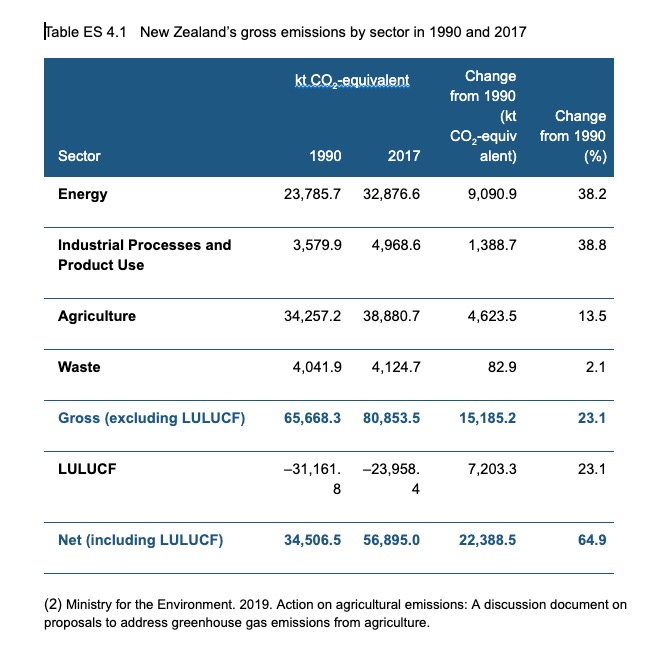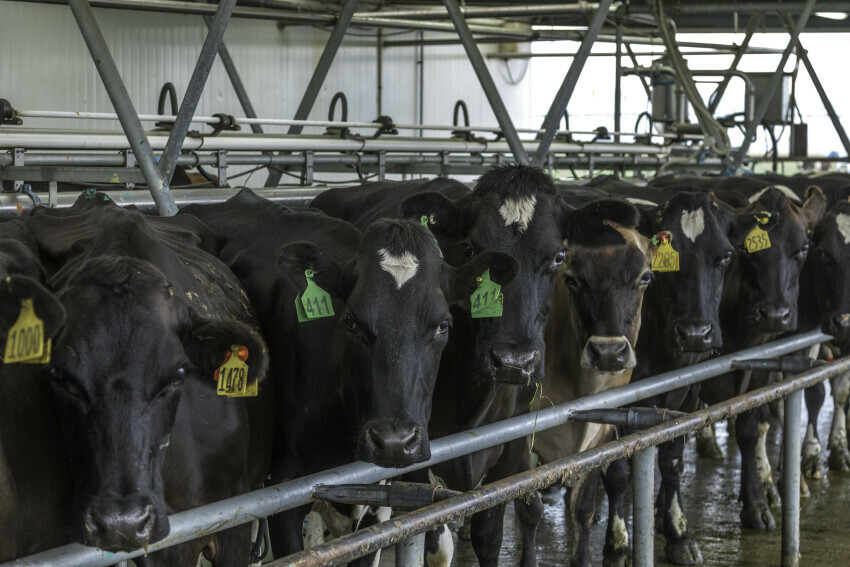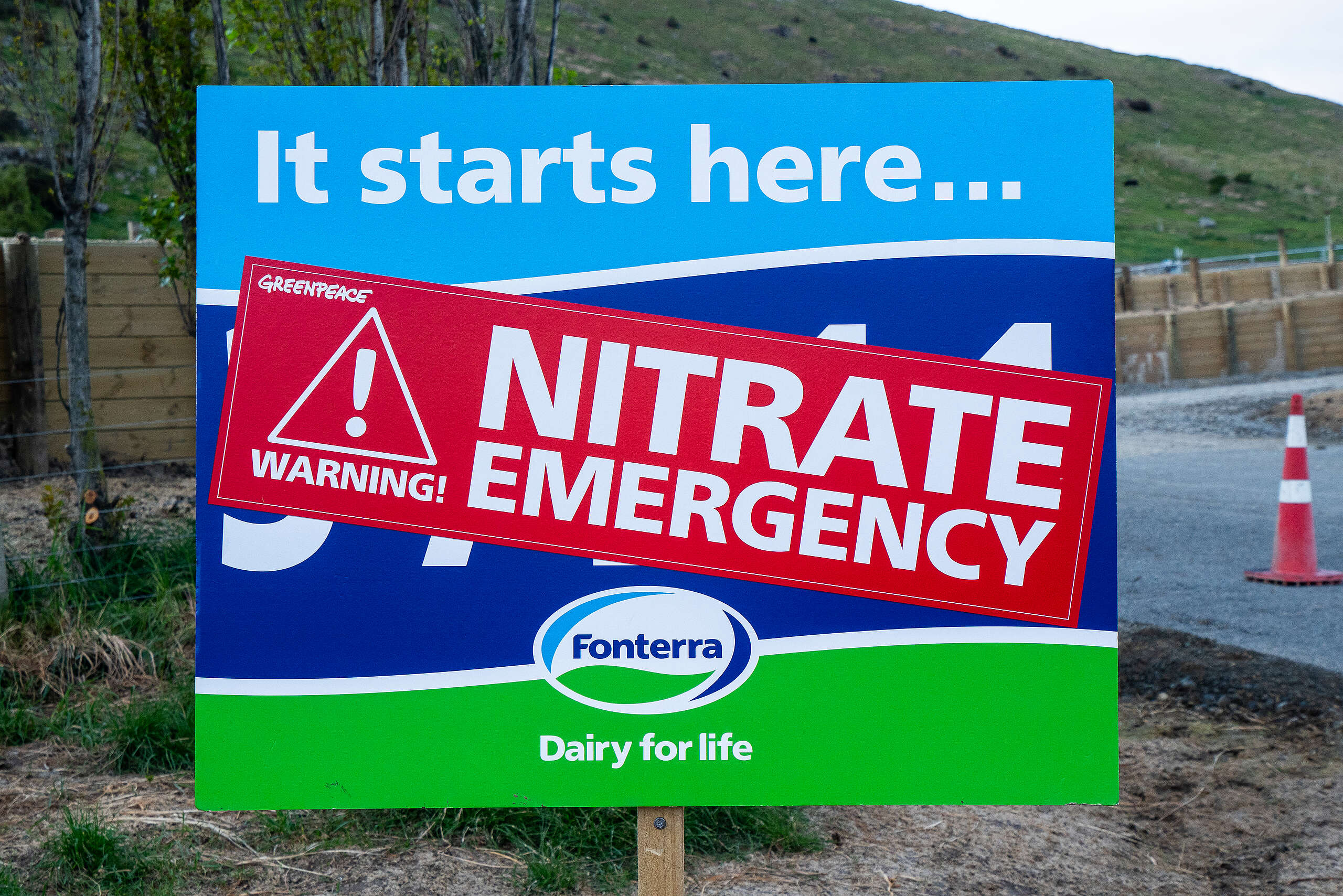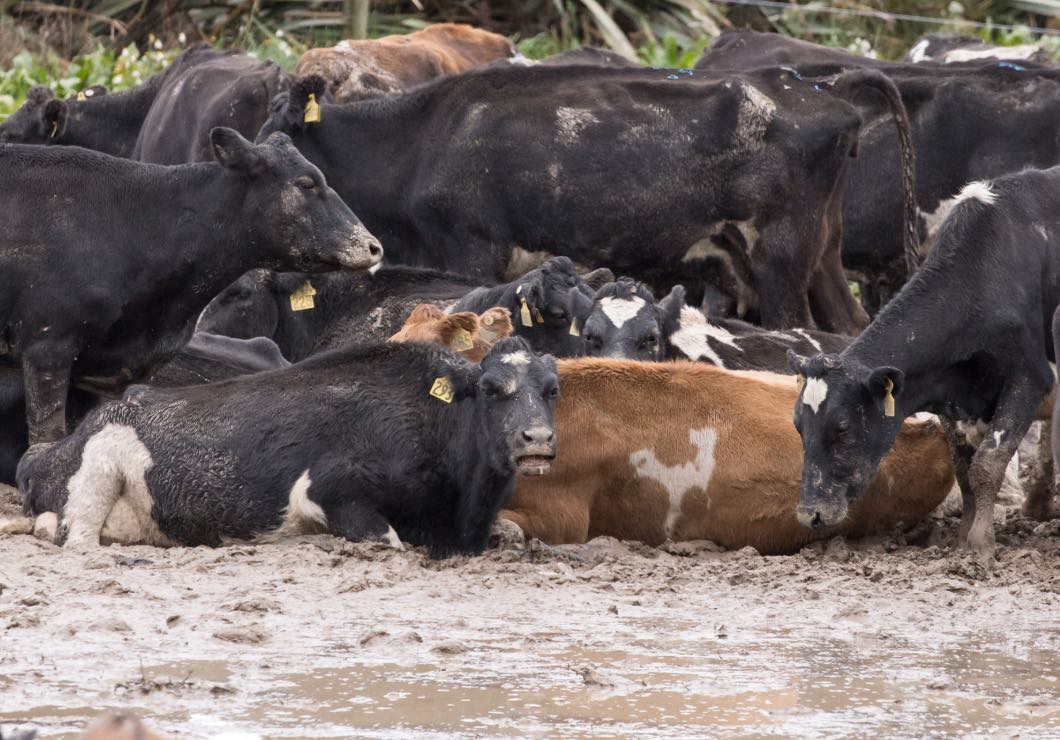Fonterra has been named and shamed as one of 13 global dairy companies causing the climate crisis to worsen, in a damning new report by the United States-based Institute of Agriculture and Trade Policy.
The institute singles out Fonterra, the second largest dairy processor in the world, for increasing its emissions in recent years and for what it called “destructive expansion into global markets”.
The report also criticises Fonterra and 12 other major dairy companies for pursuing business strategies that have caused farmers debt levels to rise dramatically.
Greenpeace Campaigner Gen Toop welcomed the report and called on both Fonterra and the Government to take heed.
“Fonterra is now attracting heavy criticism on the international stage for its global role in the climate crisis. That should be a wake up call for the company and for the Government.”
“There are too many cows being farmed with too much synthetic fertiliser in New Zealand. Intensive dairying is now the country’s worst greenhouse gas emitter,” she says.
Agriculture makes up 49% of NZ’s emissions. The industry’s emissions have risen 13.5% since 1990. The government attributes much of this rise to a doubling of the dairy herd and a 600% increase in synthetic fertiliser use.
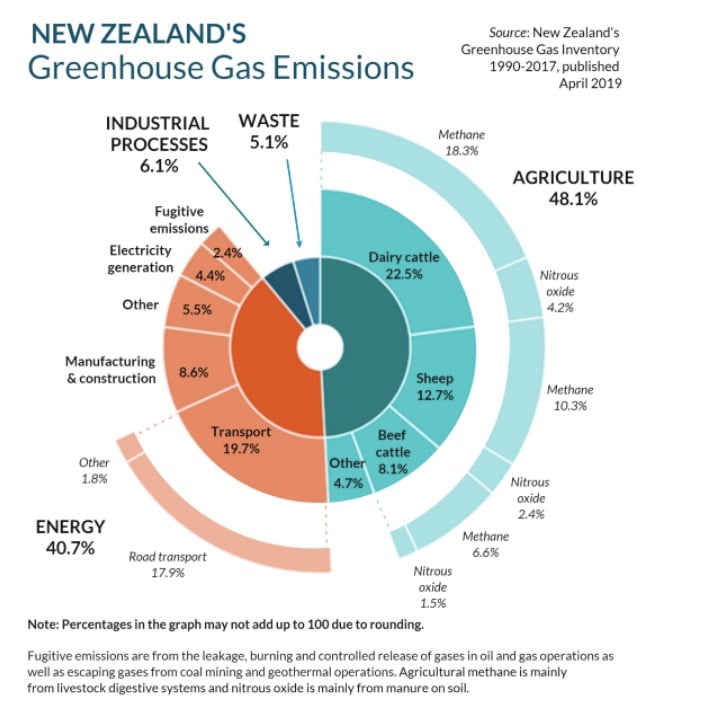
The Institute of Agriculture and Trade Policy urged a ‘dramatic reduction of the country’s dairy herd and the Government to help dairy producers and workers to transition justly to agroecological systems of production and other means of employment.’
Toop agrees, saying, “We have to rapidly reduce emissions, starting now. In New Zealand that means far fewer cows and a swift transition away from intensive livestock into more plant-based regenerative farming.
“The Government needs to ban synthetic fertiliser, which is a key driver behind the inflated dairy herd, and use some of the $20 billion post-covid stimulus budget on driving the transition to more plant-based, regenerative farming.”
The new report also called into question Fonterra’s corporate structure and investment strategy pointing to the huge losses incurred by Fonterra farmers last year and to the increase in on-farm debt by 30 billion dollars over the last 16 years (2003-2019).
It said Fonterra’s ‘export-led strategy has not only led to rising emissions, but also an economic crisis for New Zealand’s dairy producers.’
“Intensive dairying is working for Fonterra’s senior managers with their million dollar pay cheques, but it isn’t working for the climate, for our rivers, or for farmers either,” Toop says.
ENDS
